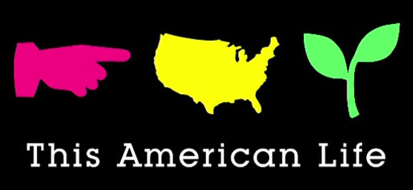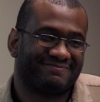Sustainability>Planet>Climate Change>deniers
I think the debate around climate change (see two previous blog posts, Advancing Science and Serving Society) reflects a lack of confidence in scientists coming in part from the health sciences where false claims and misrepresentations, not to mention theft, spill over and sully the reputation of all scientists. The result is increasing doubt and distrust on the part of citizens. It shouldn’t work that way, but it is with studies showing “trust in science is decreasing.”
Doubt: False Claims and Misrepresentation
The fact that scientists are closely allied with big Pharma on and off the campus is no big secret. Marketing drugs that generate billions in sales, year after year, by making unsubstantiated claims with mouse type disclaimers is often news and has been for years. Such was the case with Hormone Replacement Therapy (HRT) at the time a real money maker with $2.75B in revenues (2001). It supposedly prevented heart attacks, offered only a slight risk of breast cancer, and, making it the Viagra of its day, “improved the mental health, sex lives and overall well-being of older women.” Wow. Small potatoes compared to the statin Lipitor, the best selling drug of all time with 2009 revenues at $27B. And the effect of long term use of statins? Diabetes maybe? Wow again. And it really isn’t about health is it?
Forty two percent of Americans distrust the pharmaceutical and biotechnology companies and 39% gave poor ratings to pharmaceutical and biotechnology companies for failing to serve companies in 2007.
Instances of fabricating, falsifying, or misrepresenting research data are not uncommon, unfortunately, and tend to be what the reading public remembers because often the individual or someone in their community, even a close family member, have had direct experience with an undelivered “brand promise.” And it is about the scientists.
A 2007 Harris Interactive poll found that among 1,726 US adults, 27% of the public distrusts- ‘somewhat’ or ‘very strongly’- the Food and Drug Administration. More
Then there’s The New York Times report yesterday on a “scientific reversal as dramatic and strange as any in recent memory, the finding (possible cause of chronic fatigue syndrome) has been officially discredited…a legal melodrama erupted, dismaying and demoralizing patients and many members of the scientific community.”
75% of U.S. clinical trials in medicine are paid for by private companies
Distrust: Theft
Cancer Center, in Suit, Claims Ex-Official Took Research
In Monday’s business section the New York Times reports on the theft allegation by the Leonard and Madlyn Abramson Family Cancer Research Institute at Penn against its former scientific director, Dr. Craig B. Thompson, now President of the Memorial Sloan-Kettering Cancer Center. “At Penn” is the revenue angle for the University, an increasingly compromising factor that turns discoveries into gold. The overall take away: follow the money, not the science. Mr. Abramson is “one of Penn’s biggest donors” with a major source of his wealth coming from the sale of the company he founded, U.S. Healthcare, to Aetna in 1996.
From the drug scene to natural gas
 When you hear this story, Game Changer from the radio show This American Life about Terry Engelder, a geologist at Penn State University and Dan Volz, director of the Center for Healthy Environments and Communities of the University of Pittsburgh’s Graduate School of Public Health, you will hear the sound of big money talking at the intersection of environment, community, health, and climate change as natural gas is the hot “alternative clean energy investment.” We prefer to think of it as a high risk energy alternative and encourage credible advocacy from scientists on helping citizens determine just how risky to ecosystem services, especially the nation’s clean water supply, fracking really is.
When you hear this story, Game Changer from the radio show This American Life about Terry Engelder, a geologist at Penn State University and Dan Volz, director of the Center for Healthy Environments and Communities of the University of Pittsburgh’s Graduate School of Public Health, you will hear the sound of big money talking at the intersection of environment, community, health, and climate change as natural gas is the hot “alternative clean energy investment.” We prefer to think of it as a high risk energy alternative and encourage credible advocacy from scientists on helping citizens determine just how risky to ecosystem services, especially the nation’s clean water supply, fracking really is.
Antidotes to distrust and doubt
In a recent lecture Dr. M. Jahi Chappell of Washington State University referenced research that shows most of us don’t even know a scientist making it difficult to balance what one reads and sees on TV with personal experience. Dr. Chappell as a political ecologist cultivates and collaborates with a diverse group of scholars and practitioners.
Add to the isolation picture the following state of affairs in many universities and you can see opportunities for scientists to address distrust and doubt by developing personal relationships, speaking to the community directly, partnering with practitioners, and being activists for change (credible advocacy is how Dr. Chappell put it):
- academic research centers reliance on turning discoveries made on their campuses into revenue – a tide that needs turning with a firewall or two;
- scientists rewarded for writing for each other, not for citizens and credible advocacy organizations, a practice unattractive to younger faculty who understand the need to regain trust and respect while migrating from print to the world of social media and “broadcast yourself.”
- a belief on the part of the scientific community that so-called objectivity is compromised by exercising responsibilities as a citizen needs to be debunked by the leadership of educational institutions; and
- silos of belief systems organized to fly under one flag, sustainability science, designed to
… bring together scholarship and practice, global and local perspectives from north and south, and disciplines across the natural and social sciences, engineering, and medicine – it can be usefully thought of as “neither ‘‘basic’’ nor ‘‘applied’’ research but as a field defined by the problems it addresses rather than by the disciplines it employs; it serves the need for advancing both knowledge and action by creating a dynamic bridge between the two.
Video Resources
To spark interest and seed conversation among scientists who recognize the need to address trust and confidence in their institutions and community these resources are helpful, some of which have been referenced above.
Video excerpts from Dr. Chappell’s lecture at Portland State University, Social Sustainability Colloquium, the podcast, Responsibility of Intellectuals, from the program, To the Best of Our Knowledge; Gas Land by Josh Fox; Examined Life by Astra Traylor; and an interview with Al Bartlett, Professor Emeritus, Physics, Colorado University, entitled My Trust Was Misplaced.
Dr. Bartlett’s advice seem particularly apt for the citizen we all are: “You have to do your own thinking.”
Ruth Ann Barrett, February 8, 2011, Portland, Oregon


Pingback: Excerpts from AgroEcoProf presentation at PSU’s Social Sustainability Colloquium, and related blog post | AgroEcoPeople